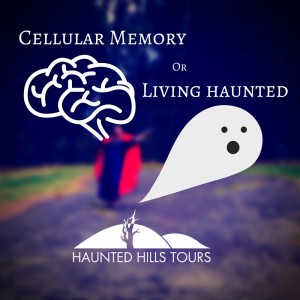
Cellular Memory or Living Haunting?
The story about Valery Spiridonov, the Russian Man with Werdnig-Hoffman disorder, who has offered to be the first person to undergo a head transplant on to a body, intrigued me. It reminded me of the theory of Cellular Memory. He would have more donated cells than any other transplant recipient. Would this affect the level of memory, he receives from the cells? I hope he has all the success and gets a new lease on life.
Valery’s current condition Wednig-Hoffman disorder is fatal as it wastes the muscles away. He currently works as a computer scientist. I think this is a very courageous thing for this man to do, that could change the outcome of people with similar diseases.
Cellular Memory is most common in heart transplant patients, although not all the heart transplant patients experience shared memories, personality changes from the donor heart. The hypothesis is that heart and brain share special nerves that directly relate with one another, making “learned by heart” not just cute phrase.
It also has occurred in other people with major organ transplants. The first time I heard about this was that allegedly a lady was given a heart and she remembered credit details of the donor. I haven’t been able to find this story online. But I did find a whole host of others and one is very alarming.
(More information about cellular memory – scroll down for more stories)
Examples of cellular memory
William Sheridan a 63-year-old New Yorker developed a passion for art and started sketching after a transplant. His organ donor was an artist.
Claire Sylvia heart donated from a young man who died. Her taste in food changed she found a new appreciation for chicken nuggets, beer and green peppers, things that weren’t must haves before surgery.
An 8-year-old girl began having vivid nightmares of being murdered after her heart transplant. Her heart was donated to her by a 10-year-old who’d been murdered. After a few appointments with the psychologist, they informed the police of the details and face the 8-year-old girl was seeing and the murderer was caught.
The story above isn’t the most alarming, this one is.
69-year-old Sonny Graham received a donor heart from Terry Cottle. He wanted to thank the family for giving him a second chance. He sent a letter and they found eventually the widowed wife of the donor heart he possessed. It was love at first sight. They married and were incredibly happy. Until one day without any warning, he shot himself, in the same way, on the same day the original owner of the heart had.
Common experience of cellular memory
The most common change is food preferences. Not all organ transplant recipients have changes and there are a number of theories as to why these changes occur as not all believe in cellular memory because there isn’t a pattern or consistency in it. Which is why the story of a head transplant started my cognitive wheels spinning.
The other theories are Hospital Grapevine Theory. That while you’re under the hospital staff talk around about the organ that putting inside you and patients subconsciously pick up the details and make changes. Probably out of gratitude to being allowed to live. Criticisms of this theory is that not all hospital staff know intimate details of the donors, nor does anyone come out of surgery knowing how to perform surgery. Scalpel, please.
Quantum theory has a cellular memory theory.
The drug theory that is similar to the hospital grapevine one, but that’s the way the aesthetic and anti-rejection medication interact causes changes in food preferences. This would explain food preferences yet not the other kinds of knowledge or changes.
Spiritualist cellular memory theories
Another is haunted, whether a nice person who wants to watch over you and desires to fulfill some of their food cravings or are more sinister. Psychics and Spiritual healers speculate the spirit of the donated organ isn’t ready to move on. The term I used at the start was living haunting, because there is one part of that person who’s dead, that is alive, in the organ recipient. Just like not all spirits stay, or every house would be haunted, not all will stay with their organ. Some will leave and go on in their journey. For those that don’t leave, you may need help moving them on.
Another study found 18 factors that allow for this phenomenon that it was usually women, with high EQ, environmentally sensitive, sensual, animal loving, creative and easy going. This list sounds a lot like the type of person people and spirits are drawn to. Also known as empaths or overly sensitive personality.
There is also a magnetic field theory
Similar to the neuron theory, except a magnetic field is shared from the transplanted organ.
If you are concerned talk to your doctor, seek spiritual healing, however find out how they will do that and don’t take anything internally unless your doctor says it’s ok. The last thing you want is a bad reaction with your medications.
If you have a story you’d like to share with me, you can in the contact box below or email hauntedhillstours@gmail.com – Please read our privacy policy, in short, I will use your story, I won’t identify if you that’s what you choose.
